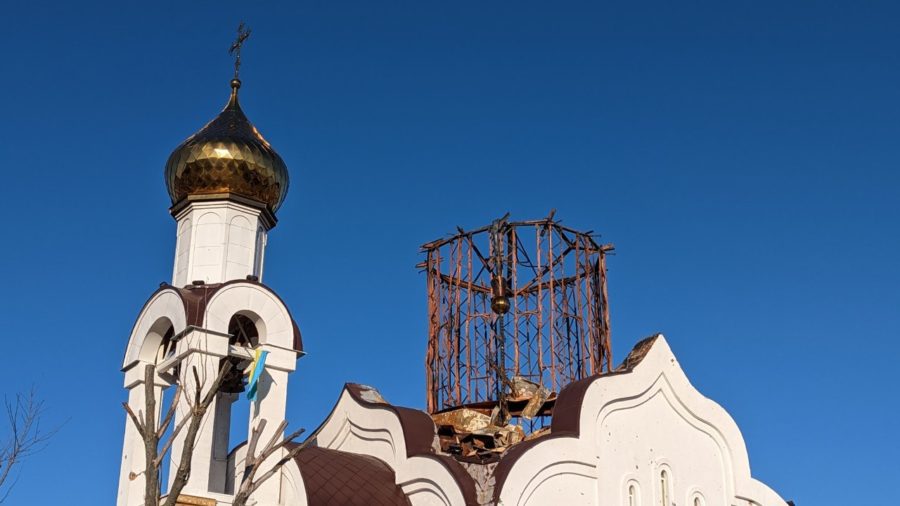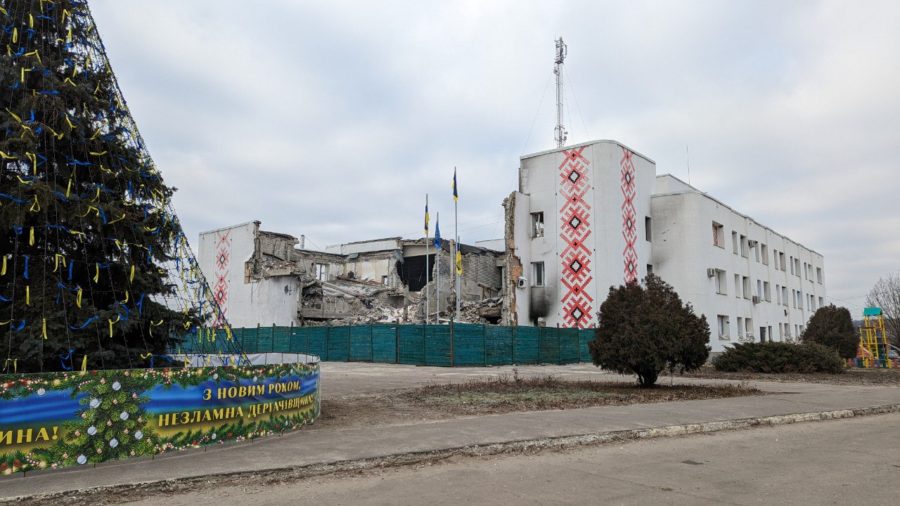ZMINA collected facts of deportations of Ukrainians to the territory of Russia in Kharkiv region
On January 23–27, representatives of Human Rights Centre ZMINA visited Kharkiv region on a field mission to document the facts of deportation of Ukrainians by Russia.
 Field mission participants
Field mission participantsFor the mission, human rights defenders and documentators chose the settlements of Kharkiv region in which numerous facts of deportation to the territory of Russia are known: Lyptsi, Ruska Lozova, Cherkaski Tyshky, Ruski Tyshky, Derhachi, Kozacha Lopan, Staryi Saltiv, and Tsyrkuny.
The trip was organized to collect testimonies of people whom the Russians deported during the occupation. Some local residents managed to return home.
 Damaged church in Staryi Saltiv. Photo: ZMIN
Damaged church in Staryi Saltiv. Photo: ZMINFor example, Valentyna, a Kozacha Lopan resident, said that the invaders had come to her house on the night of September 11, before the Russian troops withdrew from the village. She and other people were told that there was an emergency evacuation. The Russians took people away by bus. Valentyna and other residents of the village were taken to a railway station in Belgorod. In her opinion, that night the occupiers took away 1,500 people from their and neighboring villages. Two months later, the woman managed to return to Kozacha Lopan with the help of volunteers.
In addition to local residents, ZMINA representatives spoke with head of Lyptsi village military administration Oleksiy Slabchenko, local council member Serhiy Kryvetchenko, and head of Kozacha Lopan village Liudmyla Vakulenko. Slabchenko and Kryvetchenko were among those who were forced to leave for Russia because the Russian military did not allow them to go to Ukraine-controlled territory.
According to ZMINA documentation coordinator Yelyzaveta Sokurenko, field missions are needed to collect testimonies directly from survivors or witnesses of alleged war crimes, to understand the overall context of the occupation, and to find information about potential war criminals.
 Destroyed building in Derhachi. Photo: ZMINA
Destroyed building in Derhachi. Photo: ZMINA“We document these testimonies, enter them into the Ukraine 5AM Coalition database, submit to national law enforcement agencies and international mechanisms. Field missions are an essential part of the work for further investigating, bringing the perpetrators to justice, establishing the truth, and restoring justice for victims,” Sokurenko said.
If you have found a spelling error, please, notify us by selecting that text and pressing Ctrl+Enter.















